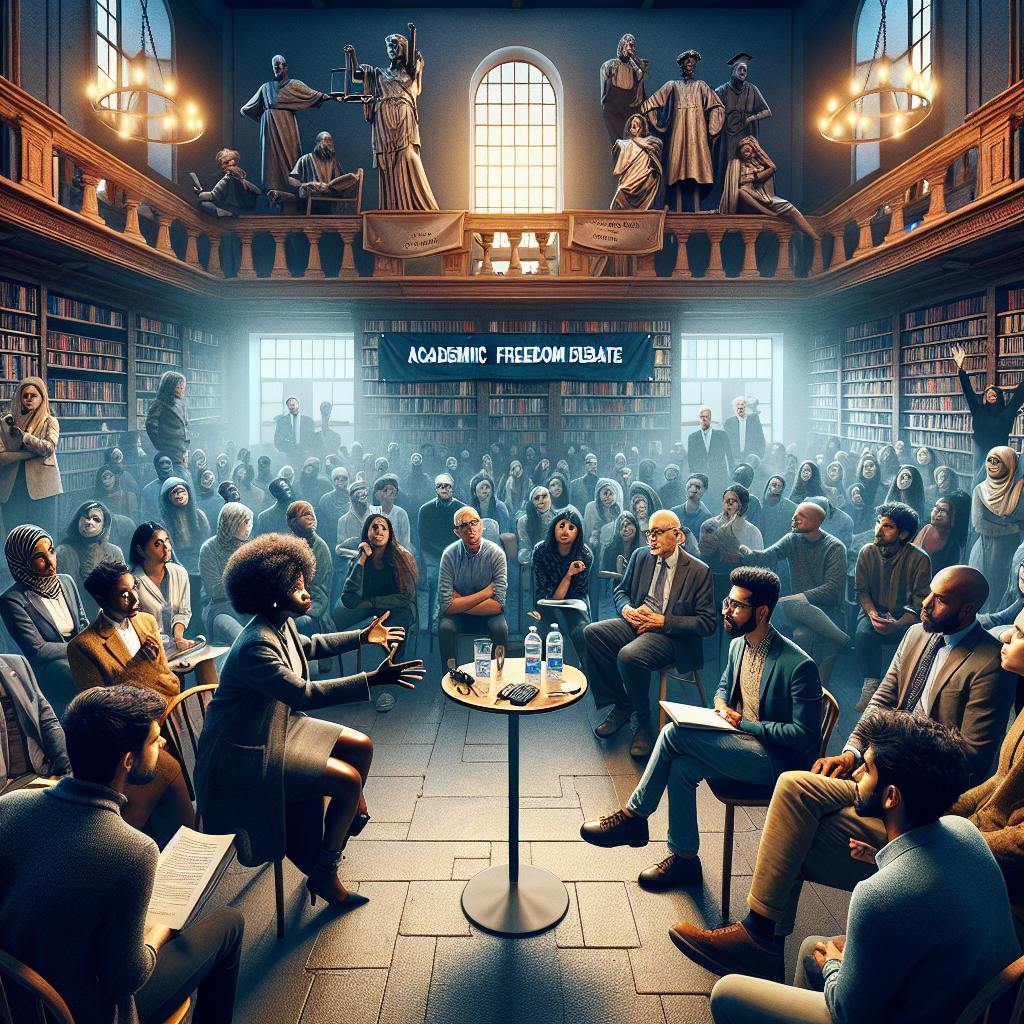

Academic Freedom Debate
In recent months, we’ve seen several colleges across the United States getting tough on professors who are openly voicing their support for Palestine amidst the ongoing conflict in Gaza. From Columbia University to Princeton University, educators are facing some serious backlash that has sparked a lot of debates over academic freedom and free speech on campus. Let’s dive into what’s happening!
Starting in the Big Apple, one notable case is that of Katherine Franke, a law professor who’s been thrown into the spotlight for comments she made during an interview on Democracy Now!. This has led to her being investigated by the university. What’s the fuss about, you ask? Franke raised concerns over a program that brings Israeli students, many of whom are former military personnel, to study at Columbia. She believes that this group has harassed Palestinian students on campus, turning a blind eye to their struggles – a situation Columbia’s leadership has strangely overlooked over the years.
Speaking of oversight, the controversy really picked up when pro-Palestinian protesters on campus reported being mistreated, including an incident where they got sprayed with a chemical—a bizarre claim that the university later tried to downplay as harmless fart spray. Franke’s concern sparked a complaint from her colleagues who argue that her words contributed to a hostile environment for Israeli students. The university’s president even criticized her during a congressional hearing — not exactly the kind of support you’d expect from an academic institution!
Next up is Maura Finkelstein, a tenured anthropology professor at Muhlenberg College. She got fired for sharing a social media post that highlighted Palestinian perspectives, which led to student complaints that deemed her actions biased against Jewish students. Finkelstein, who identifies as Jewish herself, is appealing the termination decision, arguing that her firing has to do more with her criticism of Israel than any actual harassment of students.
Finkelstein described feeling unsafe on campus following the fallout, with doxing and severe online harassment directed at her. It’s a stark reminder of how discussions about the Israel-Palestine conflict can escalate into personal attacks, altering the academic landscape in profound ways.
Meanwhile, over at Princeton University, Ruha Benjamin, a professor of African American studies, finds herself under scrutiny for her pro-Palestine activism. Ironically, Princeton has been celebrating her as a MacArthur genius, but now she’s being investigated as well. It poses the question: how can institutions uphold academic excellence while attempting to censor speech?
And it’s not just these few cases. Several other professors nationwide are facing everything from disciplinary actions to criminal charges related to their pro-Palestinian actions. For example, Tiffany Willoughby-Herard at UC Irvine faced charges related to resistance during protests, while a professor at MIT has received reprimands over disagreements regarding course content on the same issue.
Feeling like a crackdown on academic freedom, many educators worry that this sets a dangerous precedent for open dialogue on controversial issues. Ramya Krishnan, a senior staff attorney at Columbia’s Knight First Amendment Institute, is among those critiquing universities for their approach. She stresses that if professors can’t speak freely, it undermines the very purpose of higher education – to debate and discuss.
All this drama begs the question: what kind of university climate are we fostering here? A place where tough conversations are stifled isn’t an intellectual space at all. Others argue that it’s essential to invite all voices, especially those that challenge the status quo. The tension on campuses highlights ongoing divisions, both politically and socially, forcing us to consider how colleges can balance freedom of speech with the need for safe environments for all students.
As individuals, we have a responsibility to reflect on these bitter realities of academic institutions, questioning the systems in place and how they operate under pressure. Will campuses be a hotbed of political discourse moving forward, or will they fall silent?
News Summary In a significant move for the Greenville financial landscape, Apollon Financial has acquired…
News Summary In Summerville, SC, Tiffany Johnson-Wilson, CEO of Johnson & Wilson Real Estate Company,…
News Summary York County is set to welcome Komar Industries, based in Ohio, as they…
News Summary South Carolina's tourism industry has experienced a remarkable 65% growth over the past…
News Summary Lexington is abuzz as Michelin proposes a $159 million expansion at its Two…
News Summary The Columbia City Council is exploring significant changes to building height restrictions in…